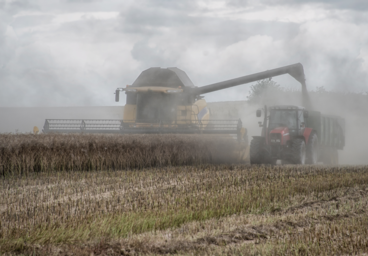Información sobre la Viruela del Mono (Mpox) para Proveedores de Atención Médica
.jpg)
(California Department of Public Health)
See CDC for advised PPE and infection control considerations
See Tulare County Provider Advisory 7/18/22
Providers must report suspected cases of monkeypox to local public health ASAP.
Criteria for suspected cases include:
New characteristic rash or meeting one of the epidemiologic criteria with high clinical suspicion for monkeypox. This epidemiologic criteria currently includes:
- Reported contact to a person with a similar rash or diagnosed with monkeypox or;
- Close or intimate in-person contact with persons in a social network experiencing monkeypox activity currently, including men who have sex with men or;
- Travel outside the US to a monkeypox-endemic country or;
- Contact with an exotic animal or animal products (game meat, creams, lotions, powders)
Providers are advised that testing for monkeypox is currently available at commercial laboratories (see links below) and the Tulare County Public Health Laboratory. Click here for examples of acceptable specimen collection materials. For commercial laboratories, see their specific collection instructions and rejection criteria.
Due to lab processing, swab specimens for monkeypox cannot be combined with other orders. At minimum, collect 2 swabs per lesion (no more than 3 lesions need to be swabbed) as below:
- Wear appropriate PPE: HCP involved in care should wear fit-tested N95; goggles or face shield; gown; and gloves for duration of visit. See CDC infection control guidance for specifics related to rooming, donning/doffing, and disinfection.
- Swab: Swab or brush a single lesion vigorously with two separate sterile dry swabs (i.e., two swabs per lesion). Use a sterile nylon, polyester, or Dacron swab with a plastic shaft. See CDC info on specimen collection on method for swabbing.
- Container: Place swabs into sterile containers. Ensure the sterile containers are clearly labeled with patient name, DOB, and date of collection, and tightly capped. Double-bag using biohazard bags.
- Store and contact: Refrigerate (2–8°C) within an hour after collection and send to the commercial laboratory (see links below) or call Tulare County Public Health below to report and arrange testing. Please provide a direct contact number to best facilitate prompt communications in larger clinical settings.
Providers may request monkeypox test kits from public health in advance to keep on hand in their offices. Providers may also request any needed PPE from public health.
For provider reporting and provider questions:
Tulare County Public Health Communicable Disease
(559) 685-5720 (business hours)
(559) 471-7092 (after-hours / weekends)
CDC Monkeypox: Infection Control in Healthcare Settings
CDC Clinicians: Clinical recognition
CDC Clinicians: Isolation procedures and patient care instructions
CDC Clinicians: Specimen collection
CDPH Division of Communicable Disease Control: Monkeypox
CDPH Healthcare Provider Health Advisory: Managing Monkeypox Virus Infection in California, 6/23/22



